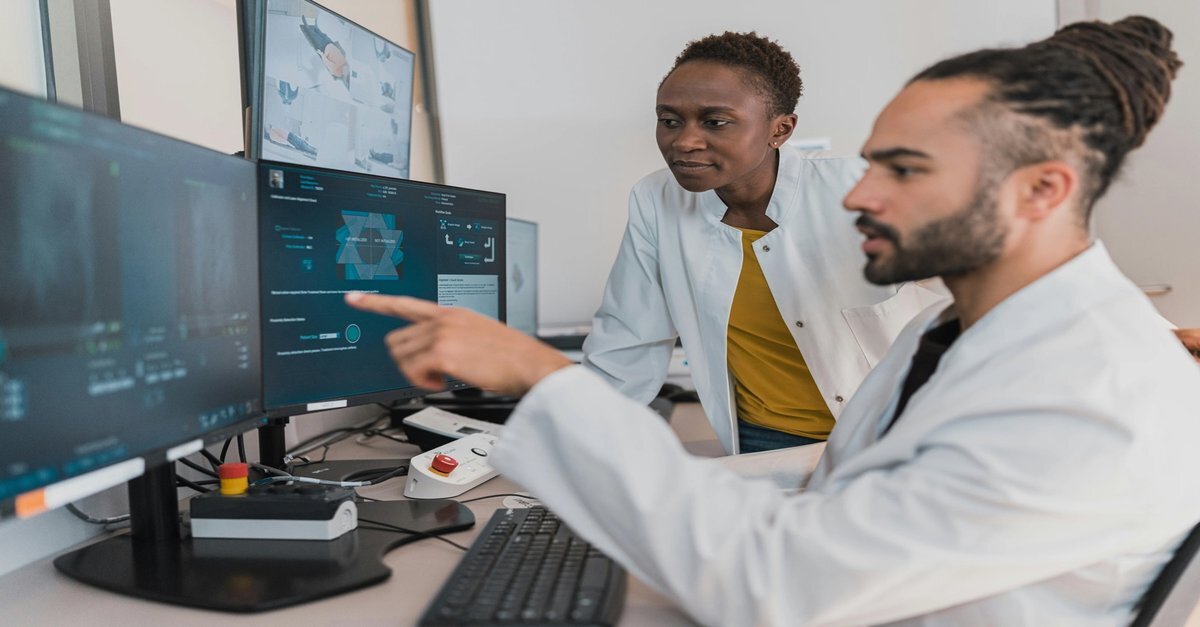Data News Flash: The Question of Data Donation
Broadly speaking, the aim of Data Donation is to harness the power of large-scale, real-world data to solve complex problems that will benefit society. The concept then clearly aligns with what we try to do here at MetadataWorks – harness the power of data for good.
The practice involves voluntarily sharing personal information like health records, browsing history, or wearable tech data with researchers, nonprofit organisations, or public interest projects.
At MetadataWorks, we’re very much used to the idea that access to more data equals accelerated research and improved outcomes. That said, in a world where we, as data literate individuals, are conscious of our data footprint and privacy, there are some obvious criticisms of the practice. In this short article, I’ll examine some of those criticisms and outline why, for me, if approached with due caution, data donation could unlock the door to groundbreaking medical research, personalised treatments, and more equitable access to innovations that benefit society as a whole.

Firstly, let’s consider why one might be sceptical of the practice:
Consent
In the long term, it might be difficult for data donors to fully understand what they’re consenting to, especially when data may be reused, shared, or analysed in unforeseen ways over time by the ‘receiver’. In my view though this isn’t necessarily a blocker - there is either an element of trust involved for the donor in assuming that the data recipient is ‘using the data for good’ – for example if you’re donating carefully selected information to an organisation that aligns strongly with your belief system (perhaps a respected charity like Cancer Research) or a donation contract outlining the strict parameters of the donation.
Privacy Risks
Anonymised data which has been freely donated can sometimes be reidentified, especially when combined with other datasets. This creates potential for misuse, data breaches, or unintended surveillance. This isn’t just theoretical: a 2008 study showed how anonymised Netflix data could be digitally matched with IMDb profiles to identify users. When we consider the types of personal information that might be shared, this presents a serious challenge to the practice. However, there is an inherent security risk to sharing any data online, and with due hesitation and the right precautions in place, most of us move forward with select data sharing.
Lack of Regulatory Oversight
Data donation initiatives often fall into legal grey areas. Established regulations like GDPR (EU) or HIPAA (U.S.) may not fully cover voluntary data donations as these projects are in their infancy. This leaves potential gaps in protection and accountability. We often find these regulatory gaps begin to open up as technology advances, and while there may be a time lag as regulation ‘catches up’, without the willingness accept such teething problems, very little would move on where new tech is concerned.
Potential Exploitation
Some have suggested that without clear guidelines, private companies might disguise profit-seeking ventures as altruistic projects. This could undermine trust and potentially exploit good intentions. Again, to my mind, the onus is on the data donor to thoroughly ‘check out’ the receiver – while I absolutely agree that regulation needs to be developed to provide checks and balances on the receivers, the potential for one bad apple needn’t upset the cart.
Perhaps it’s becoming clear as I review the risks, that in my view these considerations are surmountable, and that with sufficient thought regarding our chosen recipients, the specific information donated and the method of donation, the practice could well be worthwhile. Let’s take a look then at the potential benefits of the practice;
Accelerated Research (particularly for Nonprofits)
For me, this is the crux of it. Donated data allows researchers and charitable organisations to access real-world, large-scale datasets they would otherwise struggle to collect or have to pay significant sums to track down. This influx in data has the power to significantly accelerate advancements in healthcare, psychology, environmental science, and more. This ultimately could result in lives saved and treatments improved.
The practice, effectively providing ‘free data’ also has the power to save valuable funds to be reinvested in the data owner or charity or potentially facilitate further research. By contributing to research which may lack funding (often owing to a lack of commercial support), donors can offer particular assistance to nonprofits, universities, and public agencies tackling pressing social problems, rather than limiting research to those commercially able to fund it.
Inclusive Data
Traditional and historic studies often lack diversity in their samples. Voluntary data donation can improve representation across age, gender, geography, and socioeconomic status leading to more generalizable and equitable results. It would be possible for example for an organisation to make a request for data from specific racial groups to plug gaps in current research or help facilitate new studies which better represent a particular gender, where current findings might not take these groups into account.
Mobilising the Community
Data donation allows members of the community to contribute to a cause regardless of financial status or physical ability. This feeling of unity can not only be a boost to the individual ‘giver’ but may also help to galvanise a group to engage in further positive action.
For me, the potential positives of accelerating the scope and timeline of vital research projects far outweigh the risks. Of course, like any donation, the enterprise must be built on trust, transparency, and mutual respect and there must be thorough safeguards in place. Ethical review boards for example should be utilised to make sure that data receivers uphold the highest standards of ethical behaviour. That said, if data donation gathers momentum, in the coming years it could become a real source of public good.
If you'd like to share your thoughts or chat about Data Donation, feel free to drop me an email at Adam@metadataworks.co.uk.
 By
By


